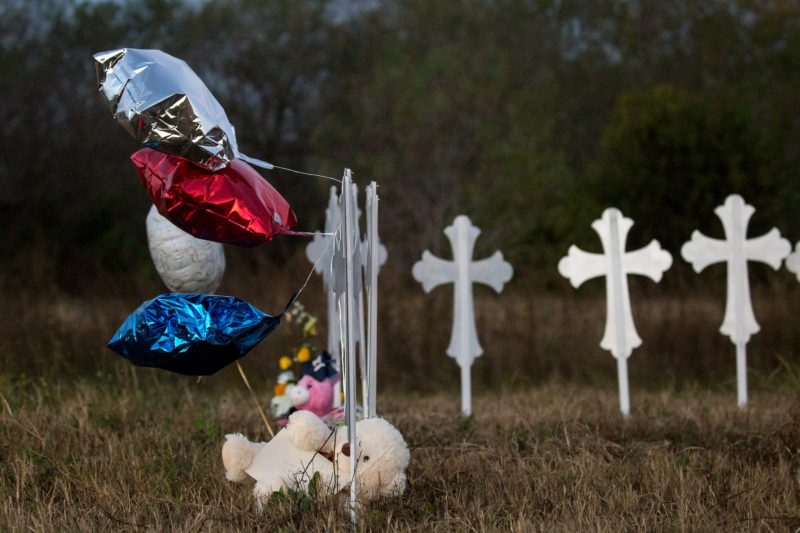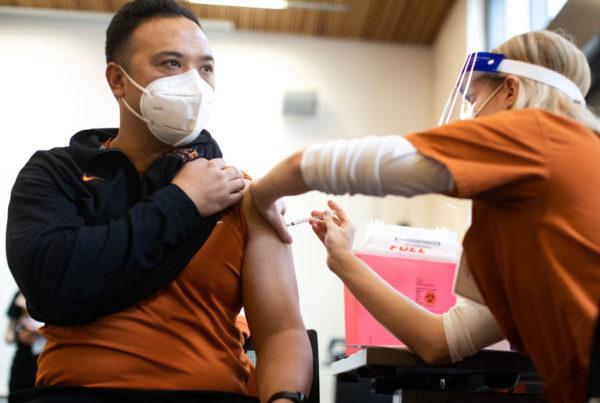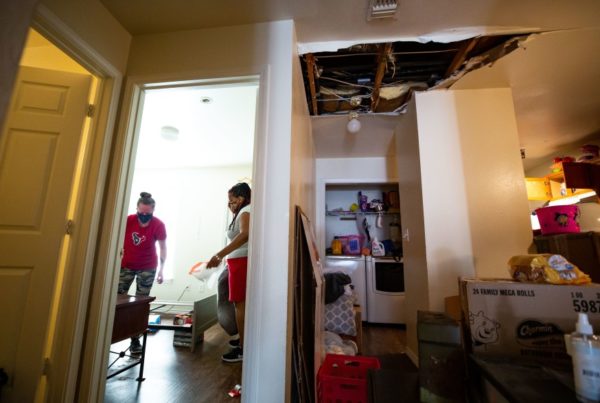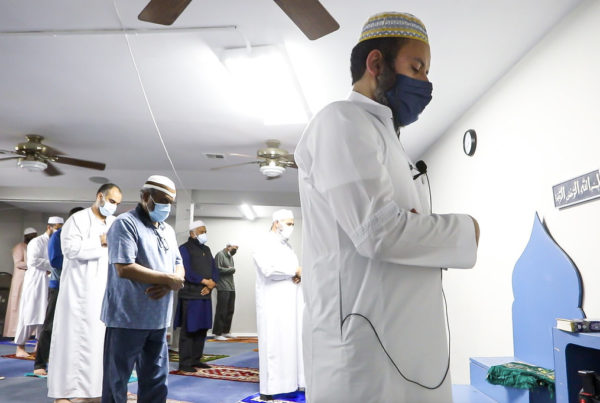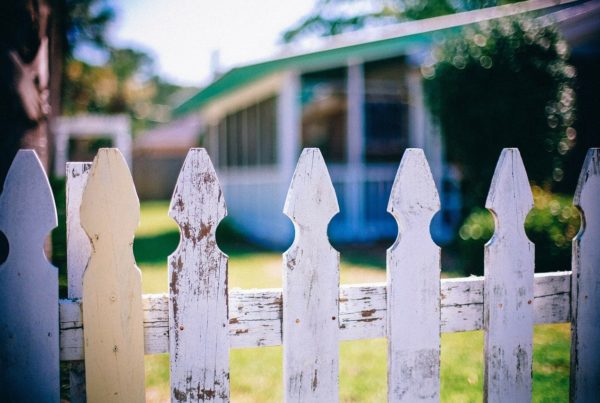The Air Force is on trial in a San Antonio federal courtroom. Families of the victims of the 2017 Sutherland Springs church mass shooting claim in a lawsuit that the Air Force failed to report the court martial and one-year confinement sentence of Devin Kelley to the national firearms database. After Kelley’s discharge in 2014, he was able to buy four guns, three of which he would use to kill more than two dozen people at the church in Sutherland Springs.
Guillermo Contreras covers federal courts for the San Antonio Express-News. He told Texas Standard that families accuse the Air Force of negligence. They say they are entitled to damages for wrongful death, pain and suffering, mental health damages and funeral costs.
Kelley was convicted of having assaulted his wife and stepson, but purchased the weapons despite his prison sentence and dishonorable discharge.
“When you’re convicted of certain crimes like a felony or a domestic violence misdemeanor, the police agency, normally, voluntarily – most do – report that to a set of databases run by the FBI called National Instant Criminal Background System,” Contreras said.
When someone attempts to purchase a firearm from a licensed gun dealer, the dealer is supposed to check the FBI database before making the purchase. If a conviction is found, the sale is denied. Kelley’s information was not in the database when he applied to purchase guns. Kelley also lied on the form that he had not been convicted of a felony. The information wasn’t verified prior to the sales.
The Air Force claims that it is shielded from liability, and that the shooting at Sutherland Springs by Kelley was not predictable. Lawyers for the Air Force also say that if the service were to be found liable, that liability would be shared with the gunman and with Academy Sports and Outdoors, where Kelley bought the guns he used.
Victims’ families have sued Academy separately in state court. Kelley had a Colorado driver’s license, and in Colorado, large-capacity magazines cannot be sold. Contreras says the families allege the sale violates Colorado’s law. The suit is currently pending at the Texas Supreme Court.


